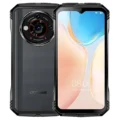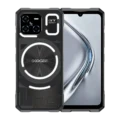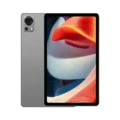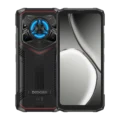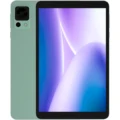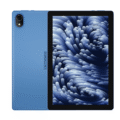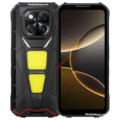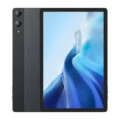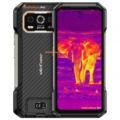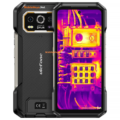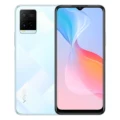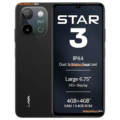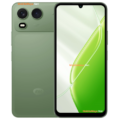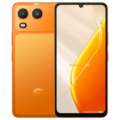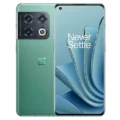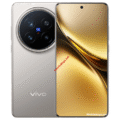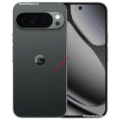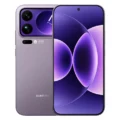Price List: Under Tk.5,000 | Tk.5001-10000 | Tk.10001-15000 | Tk.15001-20000 | Tk.20001-30000 | Tk.30001-40000 | More Mobiles
- Home
- All Mobile
- Doogee
- Doogee Blade20
Doogee Blade20
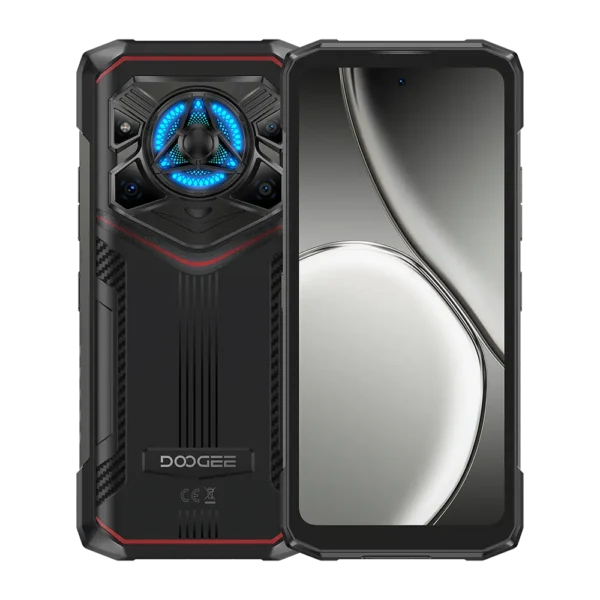


Specifications
Price in Bangladesh
| Expected Price | 30,000 |
| Global Price |
$230 |
General
| Device Type | Smartphone |
| Announced | May, 2026 |
| Released | May, 2026 |
| Status | Available |
Hardware & Software
| Operating System OS => Every computer system run on a base software called Operating System (OS). Operating System controls all basic operations of the computer (such as smartphone, PDAs, tablet computers and other handheld devices). The Operating System allows the user to install and run third party applications (apps), apps are used to add new functionality to the device. | Android |
| OS Version | v15 |
| Chipset Chipset is a group of integrated circuits designed to perform one or a more dedicated functions, often with real time computing constraints, Popular smartphones are equipped with more advanced embedded chipsets that can do many different tasks depending on their programming. | Unisoc T7200 (12 nm) |
| CPU CPU (Central Processing Unit) mostly known as processors, CPU processes instructions in order to carry out certain functions that make your device operate properly. Processors are often described as the brain of computers, smartphones and tablets, Smartphones and tablets rely on processors to carry out their every task, Processors are an incredibly important factor in selecting any type of computing device, including your smartphone. | Octa-core (2x1.6 GHz Cortex-A75 & 6x1.6 GHz Cortex-A55) |
| GPU GPU (Graphics Processing Unit) is a single-chip processor designed to rapidly manipulate and alter memory to accelerate the creation of images in a frame buffer intended for output to a display, This includes things such as lighting effects, object transformations, and 3D motion. | Mali-G57 MP1 |
| RAM (Memory) RAM (Random Access Memory) is a type of computer memory that can be accessed randomly, any byte of memory can be accessed without touching the preceding bytes that allows information to be stored and accessed quickly from random locations. RAM is the most common type of memory found in computer systems, smartphones, tablets and other electronic devices. | 4 GB |
Design
| Dimensions | 174 x 81.2 x 15.8 mm (6.85 x 3.20 x 0.62 in) |
| Weight | 327 g (11.53 oz) |
| Colors |
Black, Purple, Natural |
Display
| Display Type Display Technology => A number of display technologies and types used in mobile phones => TFT (Thin Film Transistor), IPS (In-Place Switching), OLED (Organic Light Emitting Diode), AMOLED (Active-Matrix Organic Light-Emitting Diode), Super AMOLED (an even advanced version of AMOLED), Resistive Touchscreen (Resistive touchscreens contain two layer of conductive material with a very small gap between them which acts as a resistance), Capacitive Touchsceen (Capacitive touchscreen technology consists of a layer of glass coated with a transparent conductor) | IPS LCD |
| Size | 6.6 inches, 104.6 cm2 (~74.1% screen-to-body ratio) |
| Resolution | 720 x 1612 pixels, 20:9 ratio (~267 ppi density) |
| Refresh Rate | 90Hz |
| HDR 10 / HDR+ support |
Rear Camera
| Camera Setup | Dual |
| Main Camera | 16 MP |
| Second Camera | 2 MP |
| OIS | |
| Video | 1080p@30fps |
Front Camera
| Camera Setup | Single |
| Secondary |
8 MP, f/2.2, (wide), 1/4.0" |
| Video | 720p@30fps |
Battery
| Battery Type Battery Type => Cell phones run on various kinds of batteries depending on the manufacturer, phone size or shape and features. There are basically four types of cell phone batteries => Lithium Polymer, Lithium Ion, Nickel Metal Hydride and Nickel Cadmium. | Li-Ion (Lithium Ion) |
| Placement | Non-removable |
| Capacity Battery Capacity is a measure (typically in Amp-hr) of the charge stored by the battery, and is determined by the mass of active material contained in the battery. The battery capacity represents the maximum amount of energy that can be extracted from the battery under certain conditions. | 10300 mAh |
| Quick Charging | 18W wired |
Storage
| Storage Capacity | 128 GB |
| USB OTG |
Network
| 2G Network |
GSM 850 / 900 / 1800 / 1900 |
| 3G Network |
HSDPA 850 / 900 / 1700(AWS) / 1900 / 2100 |
| 4G Network |
1, 2, 3, 4, 5, 7, 8, 18, 19, 20, 25, 26, 28, 34, 38, 39, 40, 41, 66 |
| SIM SIM (Subscriber Identity Module) is a small card that contains mobile network subscriber's account information. This allows the phone using the card to attach to a mobile network. The SIM card is most commonly associated with GSM and UMTS mobile networks. Moving a SIM card from one phone to another allows a subscriber to switch mobile phones without having to contact their mobile network carrier. SIM cards can also be used by a phone to store limited amounts of data, such as phone numbers and text messages. | Standard SIM |
Data
| GPRS GPRS (General Packet Radio Service) is a packet oriented mobile data service on the 2G and 3G cellular communication system's global system for mobile communications (GSM), Generally, GPRS is used for the purpose of wireless data transfer, such as sharing pictures and videos or browsing the Internet via a mobile phone connection. | |
| EDGE EDGE (Enhanced Data GSM Environment) is a wireless network technology generally considered the next step in the 2G network offers data transfer rates up to four times faster than ordinary GSM networks, Generally, EDGE is used for the purpose of wireless data transfer, such as sharing pictures and videos or browsing the Internet via a mobile phone connection. | |
| Speed | HSPA, LTE |
| Web Browser Web Browser => a web browser is a software application used to locate, retrieve and display content on the World Wide Web, including Web pages, images, video and other files, The primary function of a web browser is to render HTML, the code used to design or markup webpages. | HTML5 |
Messaging
| SMS SMS (Short Messaging Service) is a text messaging service component of phone, Web, or mobile communication systems. It uses standardized communications protocols to allow mobile phone devices to exchange short text messages over the networks. | Yes |
| MMS MMS (Multimedia Messaging Service) is a standard way to send messages that include multimedia content (audio clips, video clips and images) to and from mobile phones over wireless networks using the WAP protocol. | |
| Email Email (Electronic Mail) is a system for receiving, sending, and storing electronic messages, Similar to a letter, email is text messages that may contain files, images, or other attachments sent via the internet to a recipient by using applications and software prograps. An email address is required to receive email, and that address is unique to the user. | Yes |
| IM IM (Instant Messaging) is an exchange of text messages through a software application, it enable you to create a kind of private chat room with another individual in order to communicate in real time over the Internet. | Yes |
Connectivity
| Bluetooth Bluetooth is a wireless communications technology for exchanging data between mobile phones, headsets, computers and other network devices over short distances without wires, Bluetooth technology was primarily designed to support simple wireless networking of personal consumer devices. | 5.0, A2DP, LE |
| Wi-fi Hotspot | |
| Infrared Infrared connectivity is an old wireless technology used to connect two electronic devices. It uses a beam of infrared light to transmit information and so requires direct line of sight and operates only at close range. | |
| USB | USB Type-C 2.0, OTG |
| GPS GPS The Global Positioning System is a satellite-based radio navigation system, GPS permits users to determine their position, velocity and the time 24 hours a day, in all weather, anywhere in the world, In order to locate your position, your device or GPS receiver must have a clear view of the sky. | GPS, GLONASS, GALILEO, BDS |
| NFC NFC (Near field communication) is a set of standards for smartphones and similar devices to establish peer-to-peer radio communications with each other by touching them together or bringing them into proximity, usually no more than a few inches. |
Media
| FM Radio | Yes |
| Loudspeaker | Yes |
| 3.5mm Jack | No |
Sensors & Security
| Fingerprint Sensor |
More
| Made By | China |
Performance Tests
Doogee Blade20 Price in Bangladesh
The Doogee Blade20 is priced at around ৳30,000 in Bangladesh, offering a single storage variant of 128GB paired with 4GB of RAM. This smartphone enters the market as an affordable budget-friendly device with impressive battery capacity and solid performance for its price segment.
Launched in May 2025, the Doogee Blade20 stands out with its massive 10,300mAh battery, a sizeable 6.6-inch IPS LCD display with a smooth 90Hz refresh rate, and a dual rear camera setup that caters to everyday photography needs. Running on the latest Android 15 and powered by the Unisoc T7200 chipset, this handset is ideal for users who want a reliable, no-frills smartphone experience without breaking the bank. Although it is a budget device, it includes some unique features like HDR10 support and a sturdy build that makes it a noteworthy choice for power users seeking endurance and decent specs in one package.
Doogee Blade20 Specifications
Display and Design
The Doogee Blade20 features a large 6.6-inch IPS LCD screen delivering a resolution of 720 x 1612 pixels, resulting in a pixel density of approximately 267 ppi. The display supports a 20:9 aspect ratio and offers a smooth 90Hz refresh rate, which enhances scrolling and gaming fluidity beyond standard 60Hz panels. HDR10 and HDR+ support further improve video playback quality, providing richer colors and better contrast for media consumption.
Design-wise, the phone has a substantial footprint measuring 174 x 81.2 x 15.8 mm and weighs a hefty 327 grams, reflecting its large battery and durable build. Available in Black, Purple, and Natural colors, the Blade20 offers a solid and somewhat rugged aesthetic. The phone’s body material is designed to endure daily use, although it leans more toward functionality than sleekness given its thickness.
Performance and Processor
Under the hood, the Doogee Blade20 runs on the Unisoc T7200 chipset built on a 12nm process, featuring an octa-core CPU configuration with 2 performance cores (Cortex-A75 at 1.6 GHz) and 6 efficiency cores (Cortex-A55 at 1.6 GHz). The GPU is the Mali-G57 MP1, which handles casual gaming and media smoothly but isn’t geared toward heavy 3D gaming.
The device is equipped with 4GB of RAM, adequate for everyday multitasking, social media, and light apps. Storage is fixed at 128GB, offering ample space for apps, photos, and media, with USB OTG support allowing external drives for expandable storage options. This combination ensures reliable performance for general use, web browsing, and streaming without lag.
Camera and Video
Photography on the Doogee Blade20 is managed by a dual-camera setup on the rear. The main sensor is a 16MP shooter capable of recording Full HD 1080p videos at 30fps. Complementing it is a 2MP secondary sensor, likely dedicated to depth sensing or macro shots. While it lacks advanced camera features like optical image stabilization (OIS), the phone benefits from AI enhancements and night mode features to improve low-light captures.
On the front, there is an 8MP wide-angle selfie camera with an f/2.2 aperture and 720p video recording. This front sensor is suitable for video calls and casual selfies but is basic compared to higher-end competitors.
Battery and Charging
One of the standout features of the Doogee Blade20 is its massive 10,300mAh non-removable lithium-ion battery, which promises excellent longevity for heavy users. This capacity is significantly above average for smartphones in its price range, making it ideal for users who prioritize long battery life.
Charging is supported at 18W wired fast charging via USB Type-C 2.0. While it doesn’t support wireless charging, the sheer battery size ensures days of usage on a single charge, reducing the frequency of charging cycles and enhancing overall convenience.
Connectivity and 5G Support
The Doogee Blade20 supports multiple network bands covering 2G, 3G, and 4G LTE connectivity, but it does not have 5G support, which aligns with its budget segment positioning. It accommodates a single standard SIM card.
For wireless connectivity, it offers Bluetooth 5.0 with A2DP and LE support, Wi-Fi hotspot capability, infrared, and USB Type-C 2.0 with OTG functionality. Location services are robust with GPS, GLONASS, GALILEO, and BDS systems included for accurate navigation.
Additional Features
This smartphone runs on Android 15 out of the box, ensuring access to the latest software features and security updates. Security-wise, it includes a fingerprint sensor for biometric unlocking, although the exact placement is unspecified. Additional extras include an FM radio, loudspeaker, and an infrared blaster for remote control functions.
Notably, the Doogee Blade20 lacks a 3.5mm headphone jack, so users will need wireless headphones or USB-C adapters for audio output. The device does not have official water resistance ratings but offers a rugged build that can handle everyday usage well.
Reason to Buy
- Massive 10,300mAh battery ensuring multi-day use without charging
- Large 6.6-inch 90Hz display with HDR10 support for smooth and vivid visuals
- Latest Android 15 OS for an up-to-date user experience
- Affordable price with 128GB storage and 4GB RAM for everyday multitasking
- Decent dual rear camera setup with AI enhancements for casual photography
- USB-C port with OTG support for external storage expansion
- Robust connectivity options including Bluetooth 5.0 and comprehensive GPS systems
Verdict
The Doogee Blade20 is a compelling choice for budget-conscious buyers who prioritize battery life and reliable daily performance over flagship-level specs. Its large screen with a smooth refresh rate and HDR support makes it suitable for media consumption, while the sizeable battery stands out in the segment, offering impressive endurance.
Although it doesn’t support 5G and sports a basic camera system, its use of Android 15 and ample storage make it a practical, no-nonsense smartphone for students, professionals, and anyone seeking a durable phone with great battery life in Bangladesh’s affordable price bracket.
FAQ
Q: Does the Doogee Blade20 support 5G connectivity?
A: No, the Doogee Blade20 supports 2G, 3G, and 4G LTE networks but does not have 5G support.
Q: What is the battery capacity of the Doogee Blade20?
A: It features a massive 10,300mAh non-removable battery, one of the largest in its price segment.
Q: Can I expand the storage on the Doogee Blade20?
A: The phone comes with 128GB of internal storage and supports USB OTG, allowing you to connect external storage devices.
Q: What operating system does the Doogee Blade20 run?
A: It runs on Android 15, the latest version available at launch.
Q: Does this phone have a fingerprint sensor?
A: Yes, the Doogee Blade20 includes a fingerprint sensor for secure unlocking.
Q: Is the display protected with Gorilla Glass or any other protection?
A: The specifications do not mention any specific screen protection like Gorilla Glass.
User Reviews
Disclaimer Note
We do not guarantee that the information of this page is 100% accurate and up to date.

